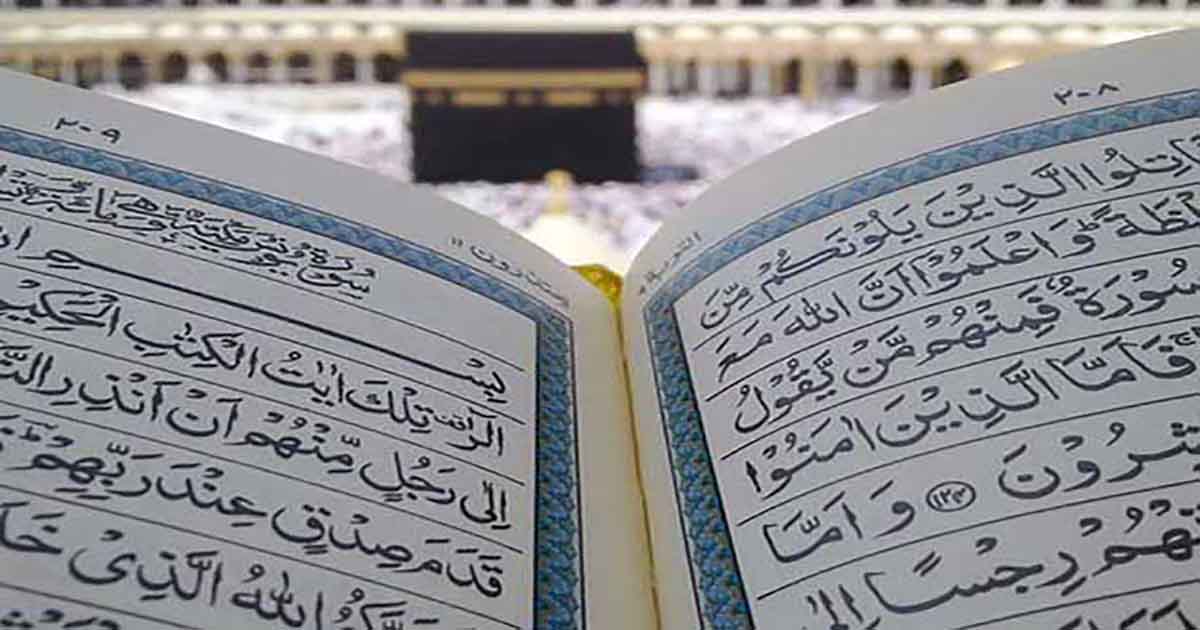Earlier, we have seen that when Ubyadullah bin Ziyād intended to go to Kufā from Basrā, Shareek bin A’awar was along with him. Shareek had a very strong inclination towards Shi’aism. He was along with Ammār bin Yasir (A) in the battle of Siffīn and his debate with Mu’āwiyah is quite renowned. When Shareek left Basrā (with Ubaydullāh), on the way he pretended to be exhausted and uneasy. He intended that Ubaydullāh might stop along with him and thus Imām Husayn (A) may reach Kufā before him, but Ubaydullāh paid no heed to him and proceeded further.
When Shareek reached Kufā he resided at the house of Hāni bin Urwāh and constantly encouraged him to support the cause of Muslim bin Aqeel and his leadership. Shareek fell ill, and because Ubaydullāh and the other nobles respected him, he sent him a message that he would come to meet him that night. Shareek told Muslim,
“Tonight the wicked man will be coming to meet me, and when he sits down you may come from behind and kill him. Then you may go to the palace and take the reins into your hands while no one will stop you from doing so. And if I am cured of this illness, I shall go to Basrā and straighten the affairs for you there.”
At night Ubaydullāh came to visit Shareek. Earlier Shareek had told Muslim,
“When that man enters herein, let him not escape from your clutches.”
Hāni stood up and said, “I do not consent to it that Ubaydullāh should be killed in my house” and despised this idea.
Thus, Ubaydullāh came and sat down and inquired from Shareek regarding his health and asked him as to what illness was he inflicted with. When their conversation became lengthy, Shareek noted that no one had come out, and fearing that the desired objective may not be achieved started reciting the following couplet:
“Why anticipate in bestowing gifts to Salmā, to him (Salmā) and to the one who bestows upon him, spill the cup of death into his throat.”
He repeated it twice or thrice. When Ubaydullāh heard it he could not understand and said that he was uttering vain under the influence of illness. Hāni said,
“Yes it is true, may Allāh amend you, he has been in this state since yesterday.”
Ubaydullāh arose and left.
Furthermore it is said that Ubaydullāh had come accompanied with his retainer Mehran. While Shareek had told Muslim that when he would ask for water, Muslim should come and strike a blow at Ubaydullāh. Ubaydullāh came and sat near Shareek on his bed and his retainer Mehran stood behind him near his head. Shareek asked for water, and when the maid was bringing water, her sight fell on Muslim who was hiding in ambush and she moved away.
He again asked for water but with no response, and for the third time he asked and said,
“Woe to you! You do not give me water. Give me the water even if it results in my death.”
Mehran understood and he signaled Ubaydullāh, to which he too arose to leave. Shareek said that he desired to will to Ubaydullāh, to which he replied that he would come some other time and left. Mehran took him away hurriedly and said,
“By Allāh, they had desired to kill you.”
Ubaydullāh replied,
“How could they do this when I respect and am kind to Shareek, and that too in the house of Hāni, whom my father had favored”?
Mehran said,
“Whatever I have said is true.”
When Ubaydullāh left, Muslim came out of his hiding and Shareek asked him as to what stopped him from killing Ubaydullāh. Muslim replied,
“Two things stopped me from doing so. First because Hāni does not approve that Ubaydullāh should be killed in his house, and second because of the Tradition related by the Holy Prophet (S) that, “Islām stops from killing anyone unawares and a believer refrains himself from it.”
Shareek said,
“If you had killed him, you would in fact have killed a transgressor, wicked and a crafty unbeliever.”
Ibn Nimā says that when Ubaydullāh went away and Muslim came to Shareek sword in hand, Shareek asked him as to what stopped him from performing the deed. Muslim replied that,
“I was just coming out when the wife of Hāni pleaded with me not to kill Ubaydullāh in their house and started weeping. Then I threw away my sword and sat down.”
Hāni said,
“Woe be to that woman! She has killed herself and myself and from what I fled has ultimately taken place.”
Shareek remained alive for three more days and then died. Ubaydullāh lead his funeral Prayers, and later when he was informed that Shareek had plotted to kill him, he said,
“By Allāh! From now on I will never lead the funeral Prayer of any of the Irāqis, and if (my father) Ziyād would not have been buried alongside him, I would certainly have exhumed the grave of Shareek.”
After the death of Shareek, Ma’qal the retainer of Ubaydullāh, who was appointed to spy upon them with his wealth, came often to Muslim bin Ausaja. Muslim took him to meet Muslim bin Aqeel who accepted the oath of allegiance from him. Then he ordered Abu Samāmah Sāedi, who looked after all the financial transactions, to accept the amount from him. Abu Samāmah was in charge of buying the ammunitions, he was a renowned brave man among the Arabs and a man of distinction among the Shi’āh.
Ma’qal started coming to them, heard their conversations and after being aware of their secrets would convey it to Ubaydullāh. While Hāni had distanced himself from Ubaydullāh with an excuse of being unwell.
Ubaydullāh called Muhammad bin Ash’as and Asmā bin Khārejah and Umro bin Hajjāj Zubaydi too, whose daughter Ruwayhah was the wife of Hāni and the mother of his son Yahyā. Ubaydullāh inquired about Hāni and his remaining aloof from them and was told that he was unwell.
Ubaydullāh said,
“I have heard that he is well and sits at his door. Go and meet him and tell him not to avoid that what is mandatory and obligatory upon him.”
They came to Hāni and told him that,
“Ubaydullāh has inquired about you, and he says that if you are unwell he would come to meet you. And people have told him that you frequently sit at your door. He is determined to know why you have kept yourself aloof from him, while the commander will not tolerate this distancing and ungratefulness, hence we request you to come along with us.”
Then Hāni called for his dress and wore it and sat on the mule and when he reached near the palace, a fear crept his heart that there might be trouble further. Hāni told Hisan bin Asmā bin Khāreja,
“O my nephew! I fear that man, what do you think about it”?
He replied,
“I do not see any reason for you to fear, thus remove any sorrow from your heart”,
and Asmā (or Hisan bin Asmā) was not aware of the trap, but Muhammad bin Ash’as was very much aware of it. Then they entered the court of Ubaydullāh along with Hāni. When Ubaydullāh saw Hāni, he said,
“The traitor has come in walking on his own feet.”
When Hāni was brought near Ubaydullāh, Shurayh was sitting next to him, and Ubaydullāh recited the couplets:
“I desire him to remain alive, but he desires to kill me.”
Ubaydullāh had been kind to Hāni and hence he told him as to what had happened. Ubaydullāh said,
“Woe O Hāni! What is this mischief which has crept up in your house against the commander of the faithful (referred to Yazid) and for the Muslims? You have brought Muslim and have sheltered him in your house and are gathering manpower and arms for him, and you think that I am unaware of these things”?
Hāni replied,
“I have not done any thing.”
Ubaydullāh said that he had done it, then when their argument increased, Ubaydullāh called the retainer (Ma’qal) whom he had sent as his spy. He came and stood facing Hāni, and Ubaydullāh asked him if he knew him to which he replied in the affirmative and Hāni understood that he was Ubaydullāh’s spy and had conveyed to him all their reports.
When he regained his mind he said,
“Listen to me and believe me that by Allāh I am not lying to you. I have not invited Muslim nor was I aware of his intentions. Then he came to my house and asked my permission to reside therein and I felt ashamed to refuse it to him. Thus this responsibility fell upon me that I sheltered him and you know what happened thereafter. And if you wish I shall pledge at your hands and deposit security with you. And I promise that after returning I shall turn him away from my house and shall return back to you.”
Ubaydullāh said,
“No by Allāh! You shall not leave until you bring him (Muslim) to me.”
Hāni said,
“I shall not bring my guest to you so that you may kill him.”
Ubaydullāh said,
“By Allāh! You will have to bring him to me”,
and Hāni replied,
“By Allāh! I shall never do so.”
It is related by Ibn Nimā that Hāni said,
“By Allāh! Even if he is under my feet, I shall not lift them up and hand him over to you.”
When their argument increased, Muslim bin Umro Bāhili (there was no other Basrān or Syrian in Kufā except him) saw that when Hāni had turned obstinate he told Ubaydullāh to leave him so that he may speak to him. He took Hāni in a corner where Ubaydullāh could see them and said,
“O Hāni! I request you in the Name of Allāh not to kill yourself nor put your tribe to hardship. This man (referring to Muslim bin Aqeel) is their cousin and they will not kill him nor inflict any trouble upon him. Hence hand him over to Ubaydullāh and there will be no shame and perdition in it for you, because you would only be handing him over to the commander.”
Hāni replied,
“By Allāh! There is shame and disgrace in it for me, I will not hand over my guest to him when I am strong and my arms are powerful and have numerous supporters with me. And even if I would have been alone and had no helper, I would not have handed him over to him, rather I would die supporting him.”
Ubaydullāh heard his words and commanded that he be brought to him. When Hāni was brought he said,
“By Allāh! Either you bring him to me or I shall behead you.”
Hāni replied,
“If you do so, by Allāh, many swords will be unsheathed around your house.”
Hāni had thought that the people of his clan would support him.
Ubaydullāh said,
“Do you make me fear the swords of your clans”?
Then he ordered Hāni to be brought closer to him. When he was brought, Ubaydullāh started striking with his cane on his nose, forehead and cheeks until his nose was fractured and blood gushed out and was smeared on his clothes. The flesh of his forehead and cheeks fell upon his beard and the cane broke.
When Ubaydullāh told Asmā bin Khārejah and Muhammad bin Ash’as to call Hāni, they said that he would not come until Ubaydullāh offers him security.
Ubaydullāh said,
“He does not require any security, but he has surely deviated. Bring him to me, and if he refuses to do so without my granting him (promise of) security, then do so.”
They went to Hāni and informed him to which he said,
“If he gets hold of me, he shall surely kill me.”
But they urged him and brought him to Ubaydullāh. At that moment Ubaydullāh was seated in the Mosque delivering the Friday sermon when Hāni arrived with his hair hanging on both sides upon his shoulders. When Ubaydullāh finished leading the Prayers he signaled Hāni, who followed him until they reached the palace. They entered therein and Hāni saluted him. Ubaydullāh said,
“O Hāni! Do you not remember that when my father (Ziyād) came to this town (Kufā), he did not spare a single Shi’āh here until he killed them, except your father and Hujr, and you are aware of what befell Hujr later. He (Ziyād) was always grateful towards you and he also wrote to the commander of Kufā that he expected him to be fair to you.”
Hāni replied that he remembered it. Ubaydullāh continued,
“And in return for these favors you have sheltered a man in your house to kill me”?
Hāni replied that he had not done so. Then Ubaydullāh ordered the Tamimi retainer to be brought forward and Hāni understood that he was Ubaydullāh’s spy and had conveyed the reports to him. Hāni replied,
“O commander! The news which has reached you is verily true, but I shall not annul your favors. Your family is under my protection; hence you may go away safely wherever you wish.”
Mas’oodi says that Hāni told Ubaydullāh that,
“Your father has surely favored and obliged me, I am wealthy and thus I desire to compensate you (because of him). Then do you desire that I should propose goodness to you”?
Ubaydullāh asked him as to what it was. Hāni replied,
“You and your family may take all your provisions and wealth and return to Syriā, for the man who is more worthy and deserving of this honor than yourself and Yazid, has come.”
Tabari and Ibn Aseer Jazari relate that hearing his words Ubaydullāh bowed his head. His retainer Mehran who was standing behind his head holding a thorny staff said,
“What a shame and disgrace it is that a nomad slave is rendering protection to you in your own dominion.”
Ubaydullāh yelled that Hāni should be imprisoned. Mehran threw his staff and caught hold of Hāni’s hair and lifted his face towards Ubaydullāh. Ubaydullāh lifted up the staff and started striking it on the face of Hāni. The thorns of the staff started flying away due to excessive force of striking and penetrated the walls. He hit Hāni with such severity that his nose and forehead were fractured.
Ibn Aseer Jazari says that Hāni extended his hands towards the sword of a soldier standing nearby but he moved back. When Ubaydullāh saw this, he said,
“You have rebelled and have thus made the shedding of your blood right for us.”
Ubaydullāh ordered that he should be arrested. Hāni was taken away and imprisoned in one of the rooms of the palace. The door was locked on him and Ubaydullāh ordered that guards be deputed on him.
When Asmā bin Khārejah saw this, he stood facing Ubaydullāh and said,
“O you deceiver! Release Hāni. You had promised us that you would protect him and when we brought him, you injured his face and shed his blood, and now you intend killing him.”
Ubaydullāh ordered him to be pounded. It was done and he was silenced. Then they left him in a wretched state and he sat down. Then Muhammad bin Ash’as (who was also sent to fetch Hāni along with Asmā) said,
“We are in total conformity with the command of the chief, whether it be profitable for us or no.”
Umro bin Hajjāj (Hāni’s father-in-law) received news that Hāni is killed, and hence he along with the clan of Mazhaj, came and surrounded the palace from all sides and called out,
“I am Umro bin Hajjāj, and along with me are the valours and noblemen of Mazhaj. We have not disobeyed nor have we abandoned our group.”
At that time Shurayh Qāzi was sitting near Ubaydullāh, and Ubaydullāh told him to go to Hāni and inquire and tell them (Umro and his companions) that he is alive. When Shurayh went, Hāni asked,
“O Muslims come to my aid! (Has) my clan been killed? Where are the virtuous ones and where are my companions? Will this enemy and son of an enemy frighten me?”
Then when he heard the voices of the people he said,
“I presume that the voice is of (the people of) my clan of Mazhaj and my noble Muslims. And if only ten of them enter herein, they will surely rescue me from here.”
Shurayh, who was accompanied by the guards of Ubaydullāh, left and later said that,
“If the guards of Ubaydullāh would not have been along with me, I would surely have conveyed the message of Hāni to them.”
Shurayh came outside and said,
“I have seen your friend with my own eyes; he is alive and has not been killed.”
Umro and his companions said,
“Praise be to Allāh that he is not killed.”
Tabari relates that when Shurayh came to Hāni, he said,
“O Shurayh! Do you see what they have done to me!”
Shurayh replied,
“I see that you are alive.”
Hāni said,
“Do I look alive in this wretched state? Then go and tell my people that if they return back, he (Ubaydullāh) will surely kill me.”
Shurayh returned to Ubaydullāh and said,
“I have seen that Hāni is alive but the marks of the torture are visible upon him.”
Ubaydullāh replied,
“I consider it befitting that a king may torture and punish his subjects. Go to these people and inform them.”
Shurayh came out and Ubaydullāh signaled Mehran to accompany him. Shurayh called out,
“Why is this vain hue and cry, Hāni is alive, but the commander has chastised him which is not fatal for his life, hence go away and do not put your lives and the life of your companion in danger.”
Hearing this they returned back.
References
Nafasul Mahmum, Relating to the heart rending tragedy of Karbala’, Sheikh Abbas Qummi, ISLAMIC STUDY CIRCLE, Mumbai, India





0 Comments